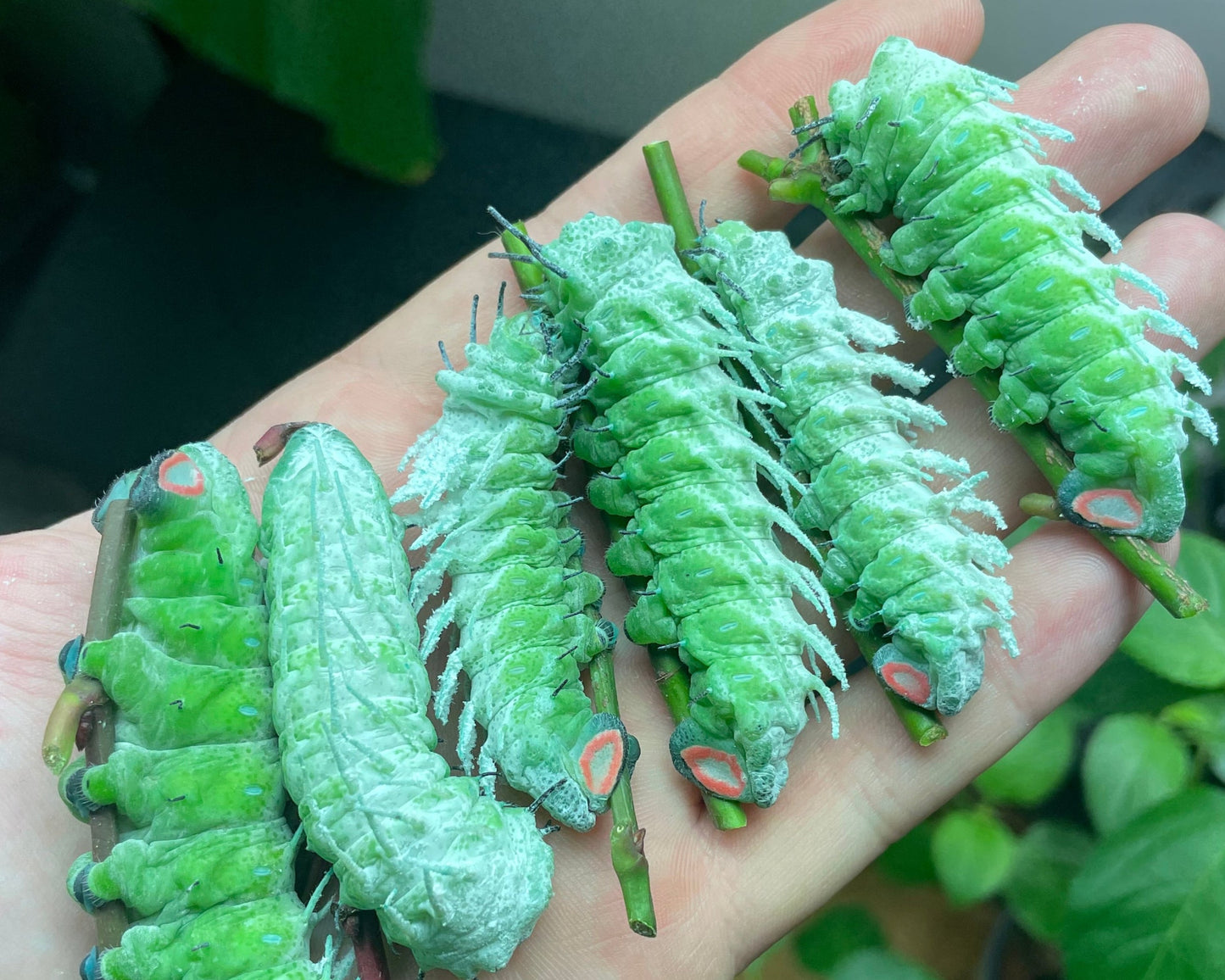Bugs & Butterflies UK
Giant Atlas Moth COCOONS (Attacus atlas)
Giant Atlas Moth COCOONS (Attacus atlas)
Couldn't load pickup availability
Attacus atlas, commonly known as the Atlas moth, is one of the largest moths in the world, belonging to the family Saturniidae. Native to tropical and subtropical forests of Southeast Asia and parts of South Asia, it is admired for its immense wingspan, which can reach up to 30 cm (12 inches), and its intricate, colorful wing patterns. The moth's wings feature a blend of reddish-brown, orange, and black, with distinctive white and pink markings that resemble snake heads at the tips, a clever adaptation to deter predators.
The lifecycle of Attacus atlas includes the stages of egg, larva, pupa, and adult. The caterpillars are pale green-blue with spiny tubercles and are covered in a waxy white substance which presumably makes them distasteful to predators. Caterpillars consume a variety of host plants in the wild, such as Lilac, citrus, and cinnamon, and in captivity do very well on a variety of common host plants. These voracious feeders grow rapidly, accumulating energy reserves to sustain them during the adult stage, as Attacus atlas moths do not have functional mouthparts and cannot feed.
Adults emerge primarily during the night, living only about one to two weeks, during which their sole purpose is reproduction. Cocoons usually emerge within a month or two during the breeding season, however depending on where the stock has been sourced from they can go into diapause (a period of dormancy) when weather or environmental conditions are unfavourable. Our Atlas stock is typically supplied from butterfly farms in Thailand, where there are usually three broods per year with the final generation overwintering from November to March within their cocoons.
Difficulty - Cocoons are easy to hatch (1/10); caterpillars are not particularly difficult but require clean, airy conditions (4/10)
Host plants - Privet; Lilac; Willow; Cherry; Laurels; Citrus; various others
Conditions - High humidity is essential for cocoons.
Lifecycle - Two or three broods annually; cocoons diapause over winter.
Share



















































































